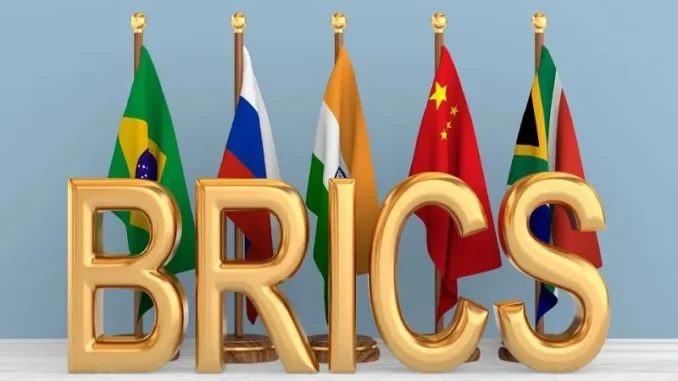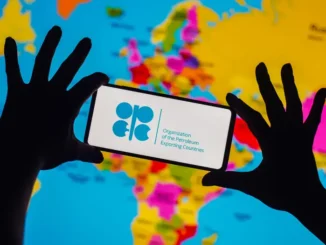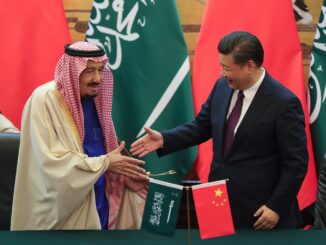
It can plausibly be hypothesized that Saudi Arabia’s unexpected decision to delay formal membership in BRICS is due to Western perceptions about this association, Iran’s involvement in the Red Sea Crisis, and Israeli-US pressure.
Saudi Commerce Minister Majid Al-Kasabi clarified on the sidelines of last week’s Davos Summit that his country hasn’t yet accepted BRICS membership despite being invited to join in August as a permanent member this year. Kremlin spokesman Dmitry Peskov responded to a question about this by reaffirming that “The work on the integration of Saudi Arabia with the BRICS countries continues; we consider it very important. It was also discussed during [Russian] President Vladimir Putin’s recent visit to Riyadh.”
Nevertheless, this development still caught a lot of observers off guard, especially those in the Alt-Media Community (AMC) who assumed that Saudi Arabia would join at the start of the year like all the other countries that were invited to do so apart from Argentina, whose new leader declined. Something clearly went wrong for the Kingdom to become the only notable exception among those that hadn’t explicitly turned this down.
BRICS’ pursuit of multipolarity isn’t akin to “anti-Westernism” like many in the West nowadays claim, but this perception might have still played in role in why Saudi Arabia suddenly got cold feet about joining. That’s not to suggest that it’ll ultimately decline membership like Argentina did, but just that it appears to have calculated that it’s best to wait a little bit for now. Another possible factor is the latest Israeli-Hamas war, which has since evolved into a regional Iranian-Israeli proxy war.
Saudi Arabia has thus far restrained itself from militarily reacting to the Houthis’ drone and missile launches through its airspace en route to Israel in order to avoid rekindling this nearly decade-long conflict, but it almost certainly believes that Iran emboldened them to carry out these attacks. Even though Iran has always denied arming that group and claims that its support for them is strictly political, only pro-Iranian members of the AMC actually believe that, with everyone else considering it to be false.
The resultant Red Sea Crisis that Saudi Arabia believes that Iran is responsible for via the influence that it exerts over the Houthis, not to mention its reportedly clandestine arms supplies to that group, might have made the Kingdom reluctant to join the same association as the Islamic Republic right now. Doing so could also further delay the resumption of its secret normalization talks with Israel, the successful outcome of which is a prerequisite for building the India-Middle East-Europe Economic Corridor (IMEC).
IMEC is expected to bring more tangible dividends to Saudi Arabia than permanent membership in BRICS, so if there’s a speculative zero-sum choice between them, then the Kingdom is expected to go with that megaproject over participation in this association. To be clear, no zero-sum choice objectively exists, but Israel and the US might make their geo-economic and financial support of IMEC conditional on Saudi Arabia staying out of BRICS as long as possible.
The Kingdom can proverbially have its cake and eat it too, however, since neither of those two limit their cooperation with BRICS-member India. It can therefore in theory participate in both BRICS and IMEC, but the reality might be altogether different if Israel and the US attach the aforementioned strings to their participation in the latter. Those two’s involvement is crucial, and this megaproject will fail to come to fruition without them, hence why Saudi Arabia might be partially under their influence right now.
Altogether, while the Kingdom’s calculations can’t be known for certain, it can plausibly be hypothesized that its unexpected decision to delay formal membership in BRICS is due to Western perceptions about this association, Iran’s involvement in the Red Sea Crisis, and Israeli-US pressure. None of these obstacles are insurmountable, but they’re still pretty formable, so Saudi Arabia might opt for a wait-and-see approach while retaining friendly ties with BRICS for now unless it finally decides to fully commit.



